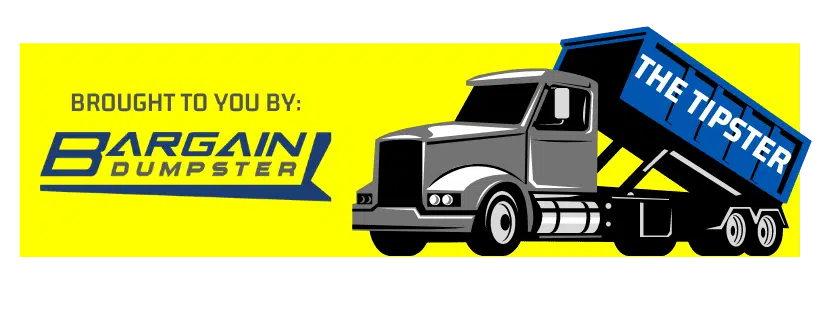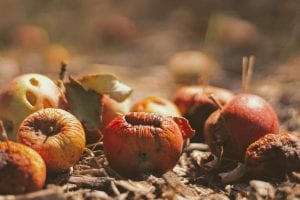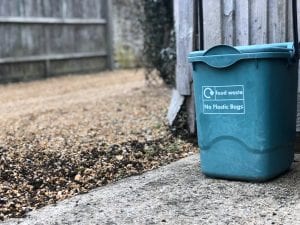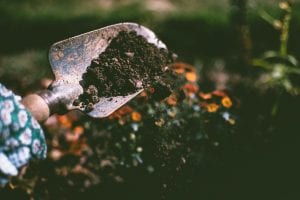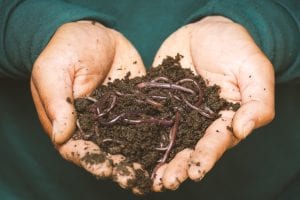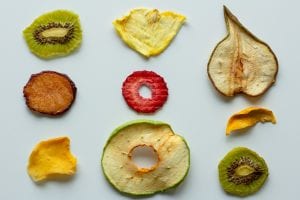More and more people are beginning to compost. It’s benefits for soil, plants, and the environment are now well known.
People have been coming up with creative ways to put old food scraps and yard waste to better use.
Some benefits of composting include…
· Nourishes soil
· Promotes profitable bacteria growth
· Reduces the need for fertilizers
· Keeps plants healthy
Please keep reading to learn some composting hacks and how to be creative doing it.
Chop Your Compost Into Little Pieces
The smaller your compost is, the better it will break down. You can cut your compost down with the tip of a shovel or run it through a lawnmower.
Smaller pieces will have more of a surface area for bacteria to grow and help it decompose. This will significantly decrease the amount of time it takes for it to be ready to use.
If you chop your compost down to small pieces, you can have ready to use soil in as little as 1-3 months.
Have a Separate Trash Bin For Food Scraps
The idea of saving our food scraps from the trash seems like a hassle for many people. And the truth is, it can be. But you can quickly fix that by getting a separate bin for food scraps in your kitchen.
By doing this, composting your scraps will become a lot easier, and you will be more likely to do it. Once you’re ready, you can dump the bin into a larger composting area in your yard or garden.
It’s also an excellent way to incorporate composting into your routine more substantially. It’s easy to forget about composting when you have it hidden outside of your house. The more you see it, the more mindful you will be.
Your Soil is Alive!
How does compost work? If you’ve ever seen a time-lapse video of composting, you’ll notice it looks like the soil is eating your scraps. Well, it is!
There is plenty of bacteria, mold, and other microorganisms that process the scraps and leave behind the nutrient fertile soil we are looking for.
What this means is that you need to treat your soil like it’s alive. It needs water, heat, and things to eat. It would be best if you also considered getting a composting bin you can turn so that you’ll have an easy way to mix the soil.
Giving you compost the conditions for organisms to thrive will make your soil ready to use faster and produce something more nutrient-rich.
Add Some Worms
When something composts naturally, there are usually other critters who help with the job. Nightcrawlers and red wigglers will process some of the scraps and help keep the soil healthy.
By tunneling in and around soil, they help mix it, but they also help air pass through. By adding some worms to your pile, you could speed up the process and keep everything healthier.
You can think of worms like little custodians. Chances are you will want to take a more hands-off approach with composting. Many of us don’t want to go through the trouble of always turning it and mixing the soil.
Worms are an easy answer to this problem, doing a lot of the work for you. Add a handful of worms, and you’ll have better quality compost with less work.
The Perfect Ratio
Unfortunately, you can’t just throw food scraps in a bin and forget about it. You need to get the right mixture of “browns” to “greens.”
Examples of greens…
· Grass clippings
· Coffee grounds
· Eggshells
· Hair
Examples of browns…
· Paper
· Lint
· Leaves
· Straw
· Twigs
The ideal ratio is two brown to 1 green. The 2:1 rate will make sure your compost has the optimal conditions for bacteria to flourish. Using an improper balance will lead to scraps taking too long to compost.mples of greens…
Add Some Scraps Beneath Your Plants
You might have heard how Native Americans used to put fish heads beneath their corn to keep it growing and to keep using the same soil plot.
This is because the fish head releases nutrients that corn takes from the soil, acting as a slow-release fertilizer. You can do the same thing for plants in your garden.
It doesn’t have to be a fish head. You can use any food scraps to get a similar effect. If you do this, you will make your plants grow healthier and longer.
Composting in your garden is also vital if you want to reuse the soil year after year. If plants take nutrients from the soil and nothing is there to replenish it, you will have a more challenging time growing things.
Composting is the perfect garden hack for saving your soil and keeping everything 100% natural. Grow better tasting fruit and vegetables, make your plants greener, and have an easier time growing anything you want.
Make Your Own Container
Composting is easy to do, and getting started doesn’t take much. If you don’t have a garden, making your container is a great way to start.
The easiest and least expensive way to get started is by buying a cheap plastic storage container. All you need to do is drill holes in the lid and through the sides to create proper airflow– then you’re done.
Just stick with the 2:1 ratio, and let it do its thing. It’s that easy. Check out some helpful tips here.
Get creative
Don’t forget that composting is good for the environment. Everyone should do their part in preventing food waste from reaching the landfill and releasing methane gas, something 22 times worse than carbon as a greenhouse gas.
There are plenty of ways to get creative when you do it yourself. If you have children, you can use the opportunity to educate them too. Using a clear container, you’ll be able to see everything compost day to day, and your kids will probably think it’s cool.
Hungry for more tips? Our Composting Pinterest Board could be a big help to you as well.
